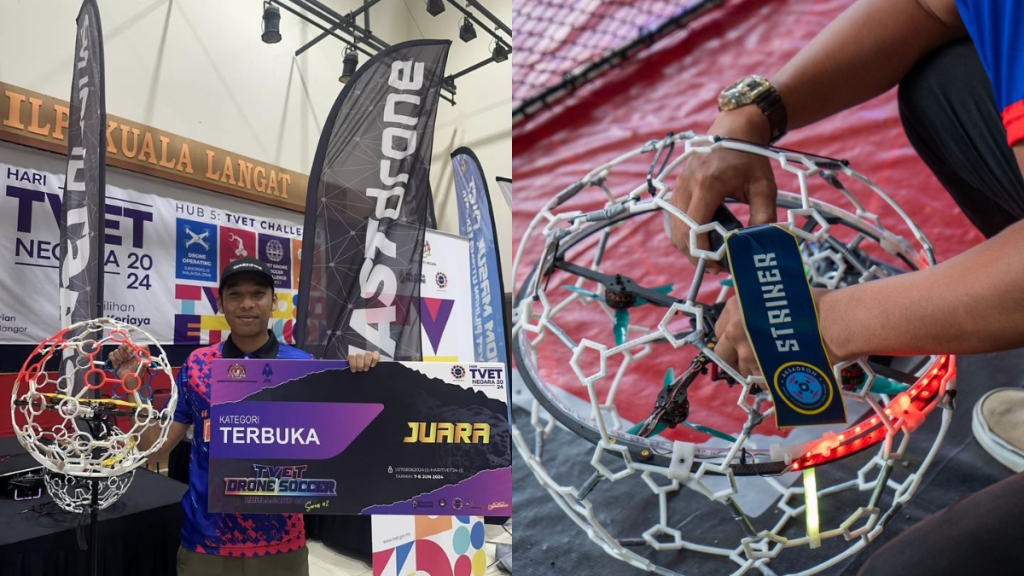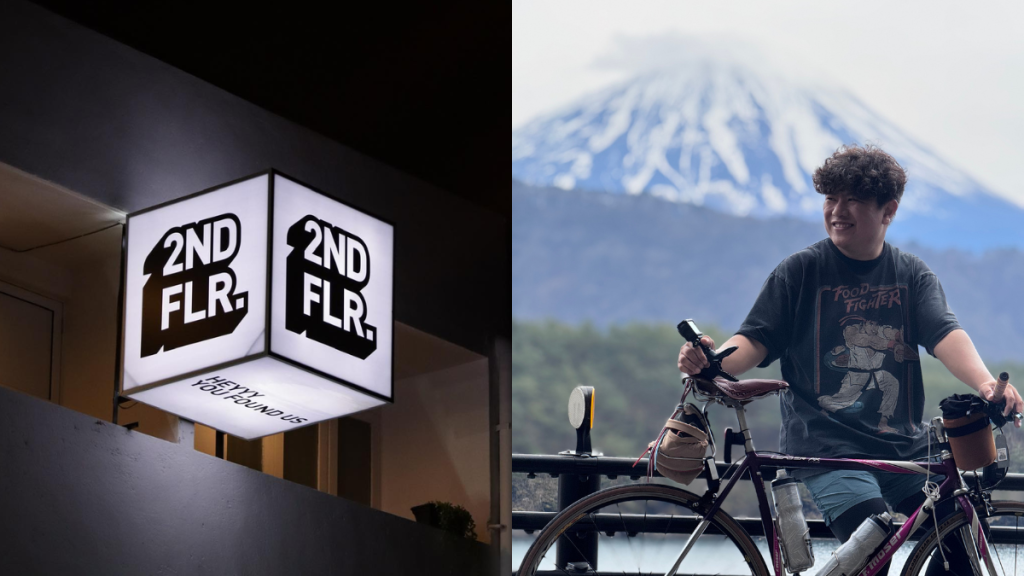[This is a sponsored article with Red Bull.]
Entrepreneurs who have been running their businesses for several years, decades even, are not one to shy away from challenges. In fact, it is not uncommon for day-to-day operations to involve some form of business difficulties.
However, when it comes to a major crisis, something that’s out of the norm, it requires a whole different level of perseverance and dedication to their work.
Red Bull, with their tagline “Mara Kita Membara”, challenged us to look for entrepreneurs to find out about their worst crisis during their entrepreneurial journey, and how they managed to triumph through them.
Losing a core member early into starting the business
To start things off, we spoke to Izumi Inoue, founder and CEO of Bereev, a business that provides death preparation services that help you create a plan for what happens after you’re gone, which guides and comforts your loved ones.

He mentioned that his major crisis happened very early on in the business, when his co-founder and chief technology officer (CTO) left due to personal circumstances that made it difficult for him to carry on.
However, unlike previous challenges, the departure of his co-founder meant that he had no one else to fall back on, especially regarding technical issues.
To make matters worse, it happened just weeks after raising their first round of funds, which meant that he was under additional pressure to remedy the situation so as to not lose the confidence of his new investors.

Izumi highlighted, “It was extremely distressing. In fact, it was the first and only time I’ve ever cried during this journey so far. I found it very difficult to shake away the thought that my dream was about to end before it even began.”
However, even though he was in a rough spot, the thought of giving up did not cross his mind.
Instead, just like the spirit of Red Bull Plus’ tagline, he persevered through and started seeking out candidates that were up to the task of being the CTO for his company.

Eventually, Izumi found someone suitable and who could resonate with his business, as he had experienced a similar personal loss before. From that point on, Izumi mentioned that things turned around for the better pretty quickly.
After that experience, Izumi learnt to remain calm even under immense stress, not overreact, and not allow his emotions to dictate his actions.
Nearly his entire product line was destroyed by natural causes
Boey Tze Zhou is the founder and managing director of both Eko Agro Biotech Sdn Bhd, and Fungitech Sdn Bhd. He produces edible mushrooms, mushroom-based supplements, and mycelium composite biomaterial for eco-friendly packaging.

Boey’s major business crisis happened in 2017, exactly a year after his mushroom farm was up and running.
While growing their mushrooms all year round, they didn’t practice crop rotation due to poor management and outdated mushroom-growing technology.
Crop rotation is a process where different crops are planted on the same substrate, which preserves the productive capacity of the substrate.
Their outdated practice ended up causing about 70% of the produce to become affected by diseases and pests, and it was an issue that stretched on for a year with a lot of loss.
As a new entrepreneur at that time, the financial loss month after month took a toll on Boey’s mental health. He was forced to reduce his salary by 70%, which was just enough to sustain his basic needs.
Unlike other challenges he had faced before, this particular crisis was more complex, as there were no case studies or companies that had gone through something similar that he knew of at that time.
“I thought about giving up, until my wife was pregnant with our first child. Since then, I knew I did not have much time left, and I started to feel the financial stress,” he expressed.

Then he found out that someone in Sepang was using a specific mushroom growing technology that might solve his issue, so he took the leap of faith and drove for over 13 hours from Penang to Sepang, and back. This technology was, fortunately, able to rectify the issue that he was facing.
On top of that, with the few improvements he later implemented, such as installing evaporative cooling pads, and switching from grey oyster mushrooms to white oyster mushrooms (which are known to be more resilient to diseases and pests), his company started to turn a profit.
When asked what the main takeaway from the whole ordeal was, he said, “Before I managed to solve that crisis, I (and almost all the mushroom growers I met) kept thinking mushroom farming is a tough industry.”
“After that crisis, I feel like mushroom growing is a relaxing job, even though it cannot generate a high profit margin, the demand is sustainable and recession proof,” he continued.
Toxic company culture nearly ended her startup

Cadence from Emery School of Coffee, a business that offers coffee-making courses ranging from leisure to professional certifications, mentioned that their business crisis happened not too long ago due to negligence.
To be more specific, she said, “For a period of time, I was away for some projects overseas, and was more focused on the training side of the business, and neglected the human resource and organisational management of the cafe.”

“It started with a senior staff member having difficulty working with one of the managers due to personal grudges. The company culture became very toxic as silent treatments, gossip, and back-chat became the norm,” she carried on.
Having said that, she felt mentally, physically, and emotionally exhausted to the point that she was losing weight because of the constant anxiety of having to juggle many things simultaneously.
Additionally, this happened towards the tail-end of the COVID-19 pandemic, which made it difficult to spend large funds to find the right candidate for the job. She also had to clear up their backlogged classes due to prior movement restrictions.
A word from the sponsor: It takes a lot of energy and mental fortitude in order to tackle even just daily challenges. To help one get through the day with fervour, Red Bull Plus is a tangy tropical citrus-flavoured energy drink that’s high in Vitamin B3, B6, and B12, while remaining sugar-free. You can purchase Red Bull Plus via their official store on Shopee.

At a point, she even contemplated giving up her coffee school business in favour of venturing into something that had less human factors involved.
But instead, she found the strength to pour her focus into making her business perform better, and making the workplace and work culture more pleasant.
The crisis started taking a turn for the better when she hired enough employees that were a good fit for the business and culture.
In order to prevent this crisis from happening again, Cadence said, “Whenever we spot that a teammate is not heading in the same direction as we do, we become more decisive and quick to take the necessary corrective actions.”
Cadence also tweaked the company’s hierarchy to a vertical organisational structure so that there is more accountability for each level of the organisation, instead of a horizontal and fluid structure that gives more autonomy to each and every employee.
Having gone through this crisis, she stated, “I have become more calm and lukewarm towards any issues I face at work. I am now able to view them simply as by-products of entrepreneurship.”
“I have learnt to view and solve them efficiently in a light-hearted manner so that I will not take up too much of my time and energy.”
His entire supply chain grinded to a halt
Lastly, we have Raymond Tea, founder of DTS Group who opened Nelayanku, a restaurant that specialises in serving fish-based meals in Bukit Jalil in December 2021.

DTS Group has been operating since 2001. They started by supplying prawn meat to hawker stores before eventually expanding into an end-to-end supply chain for aquaculture and seafood supply in Malaysia.
Raymond expressed that the biggest challenge during their 20+ years in the business was the COVID-19 pandemic. The nationwide lockdown in 2020 caused key processes like production and shipment to be halted for at least two years.
Moreover, since they’re involved in a large portion of the seafood supply chain from cultivating to shipment, the movement restrictions led to DTS group facing a large financial loss.
Raymond highlighted, “I couldn’t bear the thought of my employees losing money that they need to support their families. I was also left wondering how the company was going to sell the products that were already processed.”
It affected him physically and mentally too. He was having trouble sleeping and did not have the appetite to eat proper meals because of how severely this crisis had affected the business and their livelihood.
Wanting to do something about it, they started research and development on ready-to-cook meals derived from Barramundi fish. This then led to the foundation of Nelayanku.
From there, the business grew slowly but surely back on track, and to top it all off, Raymond claimed that market demand for seafood is almost back to pre-pandemic levels.

“We believe we have grown stronger since the pandemic. It has increased our stress tolerance and our desire to change,” Raymond reassured.
Proof of this lies in how they’ve developed new business ideas, came up with new products based on what was researched and developed during the pandemic, and established new sales channels.

-//-
All-in-all, a common theme from interviewing all the entrepreneurs above is that persistence and perseverance are important qualities to have when it comes to running your own business.
I’ve also learnt that pretty much anything can make or break your business, be it your own team, lack of expertise in your field, unforeseen circumstances, and more.
What’s important is that they didn’t wallow in self-pity or blame external factors for the unfortunate situations that they were in. Instead, they owned up to their own mistakes and took the necessary steps to remedy their crisis, even at their lowest points.
It is with this attitude that they are able to strive through hardships, something that Red Bull Plus wants to remind all Malaysians that they can do too.
Whether at work, during sports, while gaming or studying, Red Bull Plus aims to inspire Malaysians to keep striving and believing that they will one day achieve greatness.













